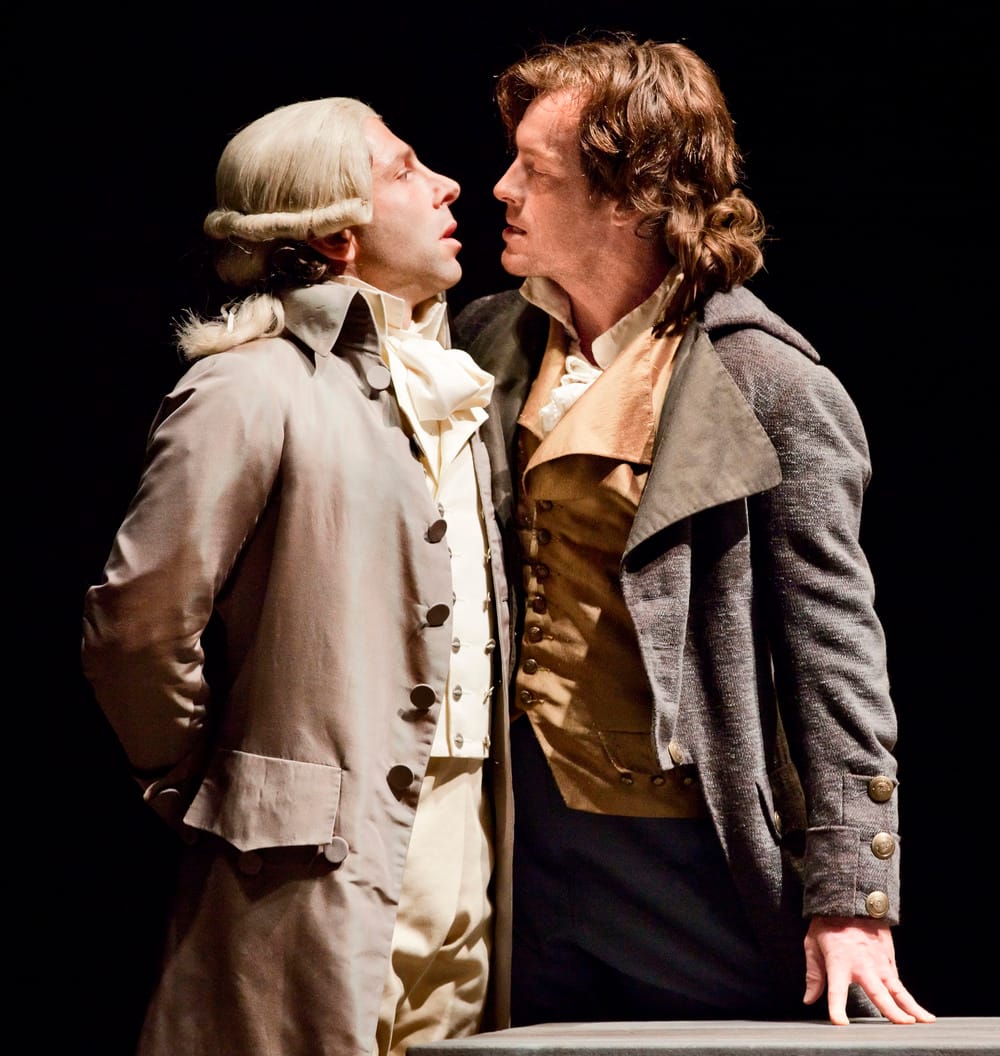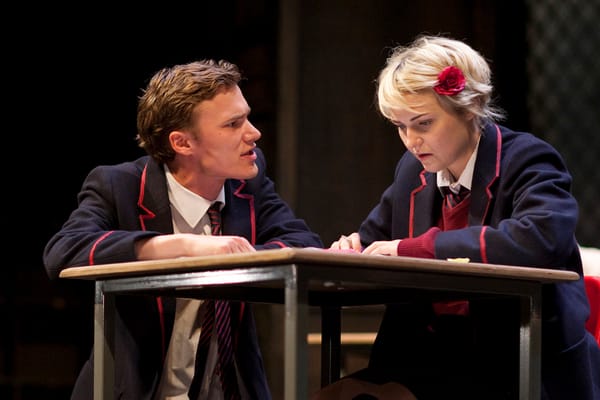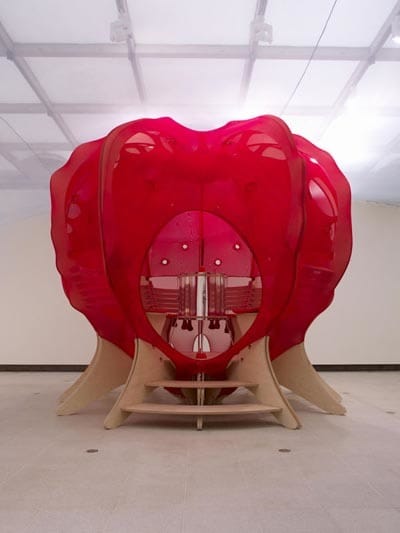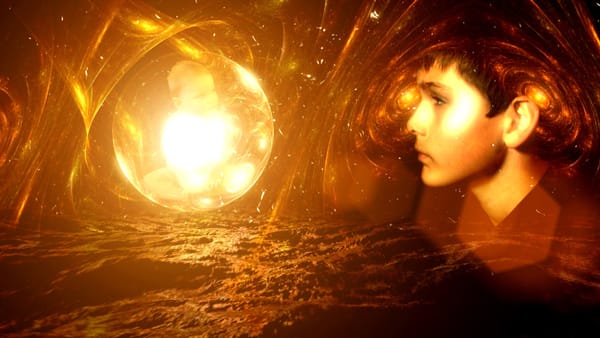Liberté, égalité, fraternité
Dominic MacIver reviews Howard Benton's Danton's Death at the National Theatre

The rhetorical bombast of revolutionary Paris, 1794, puts the modern era of bland soundbites, media management and political PR to shame. Obsessive revolutionaries, following and manipulating the public will according to their own bloodthirsty instinct for self-preservation, fill this new production of Büchner’s classic. This production emphasises the struggle between its two main anti-heroes, the sensual, hedonistic Danton and the self-righteous demagogue, Robespierre, the main architects of the Terror.
Elliot Leveys’ Robespierre was excellent in his blend of messianic obsession with the loner's insecurity, lacking physical confidence, wincing as the powerful Danton comes close to him. The power of the character lies in his oratory, as does that of his ally, the similarly well-acted Saint-Just of Alec Newman. The two of them are Machiavellian demagogues, fixated on revolutionary violence to “protect” the Republic from a host of real or imagined enemies: vice, foreigners, counter-revolutionaries, personal rivals. Their rhetoric, based by Büchner on memorised speeches (their text was illegal in 1830s Germany), allows them to whip the crowds into fear-driven rage and thereby mobilize support for their goal of destroying the rival revolutionary faction, led by Danton.
Danton, played by Toby Stephen as swaggering, arrogant and obnoxious, makes it difficult for us to like him. The role, simultaneously defiant of death and fearful of it, perhaps needed more gravitas. As the character matured as his end approached, his newfound self-awareness did not always convince. His band of co-conspirators came across as dull in comparison to their enemies, equally guilty of the “sanctimonious idealism” that they accuse Robespierre of.
This is perhaps a product of the “classical style” of oratory that much of the production is written in, which tends towards frustratingly flowery metaphor and symbolism, and various linguistic tomfoolery. It serves well to remind us of the relative primitiveness of the Revolutionaries, who glorify ancient Greece and Rome as if their era and philosophy was a utopia of human development, when in reality it was just as brutal and bloody as the times before and after it.
In their righteous pursuit of this utopia, as according to Enlightenment philosophy that over-glorifies the capacity of human reason, most of the revolutionaries ended up with their necks on the guillotine. The guillotine itself lurks in the minds of the protagonists but out of view on the bleak, multi-layered set until the very end, at which point it was used convincingly to excellent effect. The best-delivered line of the day was Danton’s: “purity needs vice, if only for the contrast.” Robespierre’s autocratic notion that “virtue must rule through terror” reminds us of the danger of human idealism, and this production is an effective and fascinating window onto that.








